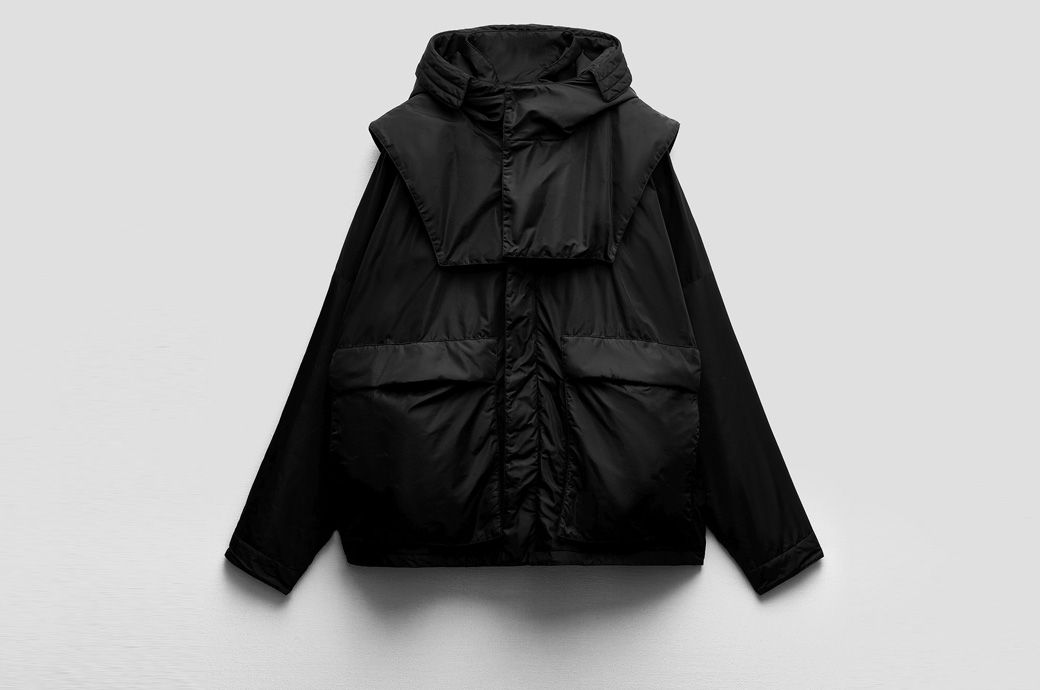
At Techtextil 2024, the leading international trade fair for technical textiles and nonwovens, which will take place at Messe Frankfurt from April 23-26, BASF will be presenting numerous solutions and new projects in the field of textiles to customers and partners at booth C11 in hall 9.1. The focus is on sustainability: whether market-leading products or new technologies – the path clearly leads towards a circular economy.
In January 2024, BASF launched loopamid, the first polyamide 6 (PA6, also known as nylon 6) to the market that is entirely based on textile waste via a segregated production. Inditex has made a jacket exclusively from loopamid; the lining, zippers, velcro fasteners and buttons are also made from the recycled material. loopamid is an innovative solution to recycle PA 6 textile waste and thus promote circularity in the fashion industry. As the chemical recycling technology tolerates all fabric blends, it enables textile-to-textile recycling of industrial textile waste and used clothing. The fibres and materials can be recycled over several cycles. At the same time, the material properties are identical to those of conventional polyamide.
With Ultramid Ccycled, BASF offers an innovative, mass-balanced product that supports the use of alternative raw materials from the chemical recycling of plastic waste that is difficult to recycle, such as end-of-life tires. The recycled raw material is fed into the beginning of the BASF production network and allocated to the Ultramid Ccycled products using a mass balance approach. Fossil raw materials are thus replaced and saved, while the product quality remains unchanged.
With Ultramid BMB, BASF has developed a sustainable drop-in concept which enables the use of biowaste raw materials in product manufacturing: Certified renewable raw materials replace fossil resources at the beginning of the production process and are then allocated to the Ultramid BMB products in the appropriate quantities via the mass balance chain. Without compromising on quality and performance, the product carbon footprint can be cut up to more than 50 per cent versus standard Ultramid.
Due to its high elasticity and excellent mechanical strength, the thermoplastics polyurethane (TPU) Elastollan is suitable to produce a wide range of materials for the textile industry, especially for producing mono- and multi-filaments, as well as for coating polyester and glass fibers. It can also be worked into nonwoven fabrics. Bio-based and certified biomass-balanced Elastollan grades provide identical material properties to those of equivalent fossil-based products.
BASF, in collaboration with CSF partners, all within a 250 kilometers (155 mile) radius in Greece, has introduced a highly transparent and traceable blockchain platform from Seed 2 Sew. The platform, technology by Bext 360° and powered by Hyperledger, allows brands to seamlessly integrate interesting data such as carbon footprint, into their supply chains through an Application Programming Interface (API). Additionally, BASF has partnered with the University of Thessaly in Greece to research and implement regenerative practices for cotton production in Europe. The aim is to provide European fashion brands with certified European non-GMO regenerative cotton, enabling consumers to make informed decisions and choose high-quality sustainable clothing, both now and in the future.
With BASF’s low-emission fibre bonding technologies Acrodur, acForm, and Acronal reclaimed materials such as denim or discarded materials such as spent coffee grounds and used paper cups can be turned into building blocks for new and more-valuable products. Extending the life cycle of single-use products helps to reduce waste and decrease the reliance on scarce natural resources. The BASF booth will showcase several upcycling exhibits developed with industry partners, including flooring produced with denim, coffee grounds and paper cups.
Further exhibits produced with fibre bonding technology include a lightweight panel made of natural fibre and Acrodur composite with paper honeycomb core, glass nonwovens for exhaust air treatment of lacquer cabins and glass meshes for the reinforcement of plaster and insulation systems.
Fibre2Fashion News Desk (RR)

